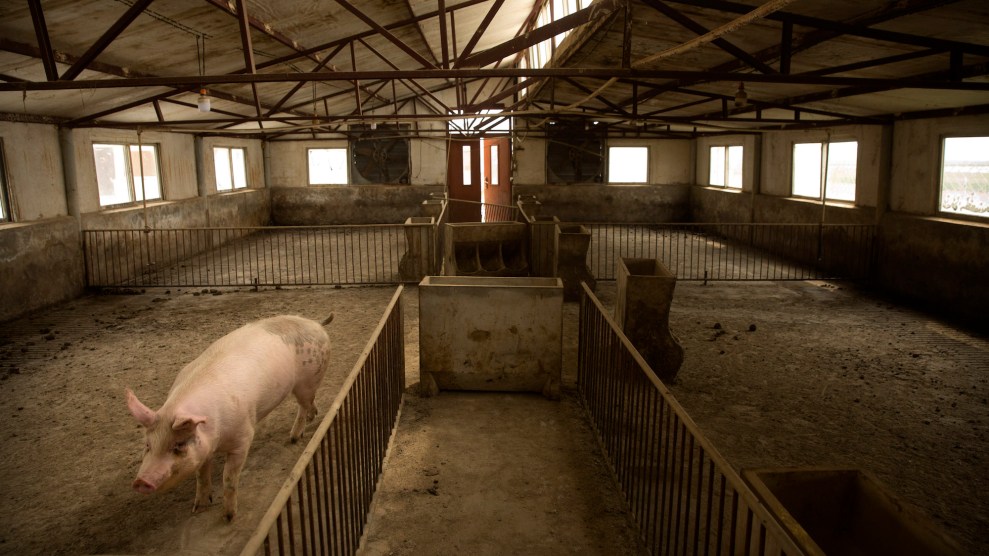A relentlessly rainy spring and President Donald Trump’s trade war with China aren’t the only forces haunting the Midwest’s corn and soybean farmers. A deadly, highly contagious disease called African swine fever—thankfully, harmless to humans—is sweeping through China’s hog farms, literally killing demand for feed.

A nearly-empty barn at a pig farm in Jiangjiaqiao village in northern China's Hebei province, where swine fever is taking its toll.Mark Schiefelbein/AP Photo
African swine fever has already wiped out at least 20 percent of the nation’s hog herd this year, according to the Dutch agricultural lender Rabobank. That amounts to about 90 million pigs—more than the entire US hog population, the globe’s second-largest behind China. That’s bad news for American farmers, because China imports large quantities of our soybeans. China houses nearly 60 percent of the entire globe’s pig herd—and fattening nearly half a billion pigs for slaughter every year requires it to import two-thirds of all globally traded soybeans.
Continue reading at: A nasty swine virus in China means big trouble for US farmers

A nearly-empty barn at a pig farm in Jiangjiaqiao village in northern China's Hebei province, where swine fever is taking its toll.Mark Schiefelbein/AP Photo
African swine fever has already wiped out at least 20 percent of the nation’s hog herd this year, according to the Dutch agricultural lender Rabobank. That amounts to about 90 million pigs—more than the entire US hog population, the globe’s second-largest behind China. That’s bad news for American farmers, because China imports large quantities of our soybeans. China houses nearly 60 percent of the entire globe’s pig herd—and fattening nearly half a billion pigs for slaughter every year requires it to import two-thirds of all globally traded soybeans.
Continue reading at: A nasty swine virus in China means big trouble for US farmers






